
Oxford is a cathedral city and non-metropolitan district in Oxfordshire, England, of which it is the county town. Founded in the 8th century, it was granted city status in 1542. The city is located at the confluence of the rivers Thames and Cherwell. It had a population of 163,257 in 2022. It is 56 miles (90 km) north-west of London, 64 miles (103 km) south-east of Birmingham and 61 miles (98 km) north-east of Bristol. The city is home to the University of Oxford, the oldest university in the English-speaking world; it has buildings in every style of English architecture since late Anglo-Saxon. Oxford's industries include motor manufacturing, education, publishing, science, and information technologies.
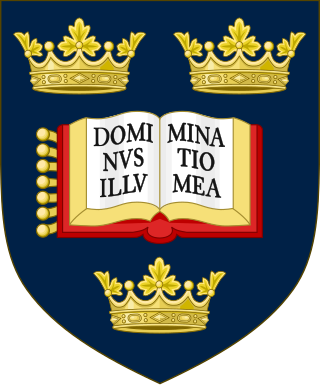
The University of Oxford is a collegiate research university in Oxford, England. There is evidence of teaching as early as 1096, making it the oldest university in the English-speaking world and the world's second-oldest university in continuous operation. It grew rapidly from 1167, when Henry II banned English students from attending the University of Paris. After disputes between students and Oxford townsfolk, some Oxford academics fled northeast to Cambridge, where, in 1209, they established the University of Cambridge. The two English ancient universities share many common features and are jointly referred to as Oxbridge.
University College London is a public research university in London, England. It is a member institution of the federal University of London, and is the second-largest university in the United Kingdom by total enrolment and the largest by postgraduate enrolment.

Imperial College London (Imperial) is a public research university in London, England. Its history began with Queen Victoria's husband, Prince Albert, who envisioned a cultural area in South Kensington that included museums, colleges, and the Royal Albert Hall. In 1907, these colleges – the Royal College of Science, the Royal School of Mines, and the City and Guilds of London Institute – merged to form the Imperial College of Science and Technology.

King's College London is a public research university located in London, England. King's was established by royal charter in 1829 under the patronage of King George IV and the Duke of Wellington. In 1836, King's became one of the two founding colleges of the University of London. It is one of the oldest university-level institutions in England. In the late 20th century, King's grew through a series of mergers, including with Queen Elizabeth College and Chelsea College of Science and Technology, the Institute of Psychiatry, the United Medical and Dental Schools of Guy's and St Thomas' Hospitals and the Florence Nightingale School of Nursing and Midwifery.
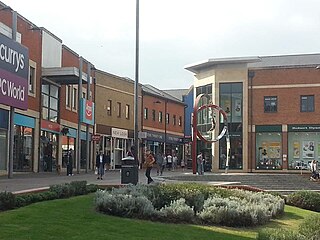
Didcot is a railway town and civil parish in South Oxfordshire, England, located 15 miles (24 km) south of Oxford, 10 miles (16 km) east of Wantage and 15 miles (24 km) north west of Reading. Historically part of Berkshire, the town is noted for its railway heritage, Didcot station opening as a junction station on the Great Western Main Line in 1844. Today the town is known for the railway museum and power stations, and is the gateway town to the Science Vale: three large science and technology centres in the surrounding villages of Milton, Culham and Harwell.

The British Trust for Ornithology (BTO) is an organisation founded in 1932 for the study of birds in the British Isles. The Prince of Wales has been patron since October 2020.

Oxford Brookes University is a public university in Oxford, England. It is a new university, having received university status through the Further and Higher Education Act 1992. The university was named after its first principal, John Henry Brookes, who played a major role in the development of the institution.
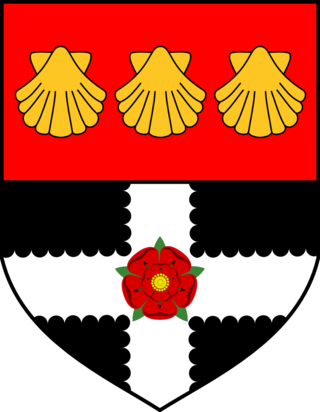
The University of Reading is a public research university in Reading, Berkshire, England. It was founded in 1892 as University College, Reading, a University of Oxford extension college. The institution received the power to grant its own degrees in 1926 by royal charter from King George V and was the only university to receive such a charter between the two world wars. The university is usually categorised as a red brick university, reflecting its original foundation in the 19th century.

The Wellcome Trust is a charitable foundation focused on health research based in London, United Kingdom. It was established in 1936 with legacies from the pharmaceutical magnate Henry Wellcome to fund research to improve human and animal health. The aim of the Trust is to "support science to solve the urgent health challenges facing everyone." It had a financial endowment of £29.1 billion in 2020, making it the fourth wealthiest charitable foundation in the world. In 2012, the Wellcome Trust was described by the Financial Times as the United Kingdom's largest provider of non-governmental funding for scientific research, and one of the largest providers in the world. According to their annual report, the Wellcome Trust spent GBP £1.1 billion on charitable activities across their 2019/2020 financial year. According to the OECD, the Wellcome Trust's financing for 2019 development increased by 22% to US$327 million.
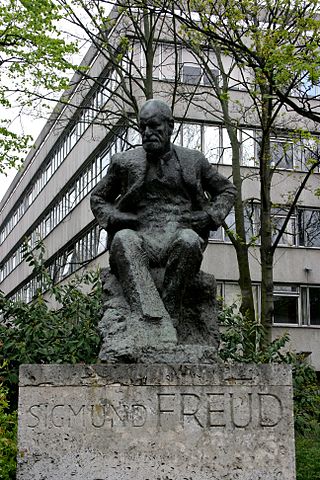
The Tavistock and Portman NHS Foundation Trust is a specialist mental health trust based in north London. The Trust specialises in talking therapies. The education and training department caters for 2,000 students a year from the United Kingdom and abroad. The Trust is based at the Tavistock Centre in Swiss Cottage. The founding organisation was the Tavistock Institute of Medical Psychology founded in 1920 by Hugh Crichton-Miller.
Cheney School is a secondary school and sixth form with academy status, located in Headington, Oxford, England. It serves the Headington and East Oxford area as a destination for students from primary schools across the city. The headteacher has been Rob Pavey since 2020. Cheney School is part of River Learning Trust.
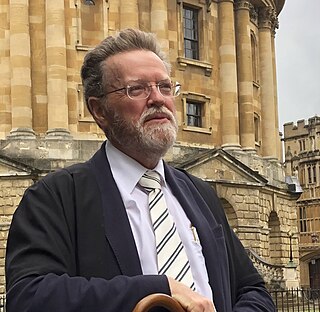
Sir Keith Burnett, CBE, FRS FLSW FINSTP is a Welshphysicist and President Elect of the Institute of Physics. He is Chair of the Nuffield Foundation — an independent charitable trust with a mission to advance educational opportunity and social well-being, founding Chair of the Academic Council the Schmidt Science Fellows, and a member of the Board of international education providers Study Group.

Gilean Alistair Tristram McVean is a professor of statistical genetics at the University of Oxford, fellow of Linacre College, Oxford and co-founder and director of Genomics plc. He also co-chaired the 1000 Genomes Project analysis group.
John Andrew Todd is a British geneticist who is Professor of Precision Medicine at the University of Oxford, director of the Wellcome Center for Human Genetics and the JDRF/Wellcome Trust Diabetes and Inflammation Laboratory, in addition to Jeffrey Cheah Fellow in Medicine at Brasenose College. He works in collaboration with David Clayton and Linda Wicker to examine the molecular basis of type 1 diabetes.
Cambridge University Health Partners is an academic health science centre that brings together the University of Cambridge, Cambridge University Hospitals NHS Foundation Trust, Royal Papworth Hospital NHS Foundation Trust and Cambridgeshire and Peterborough NHS Foundation Trust. It is largely located on the Cambridge Biomedical Campus, on the southern border of Cambridge, England.
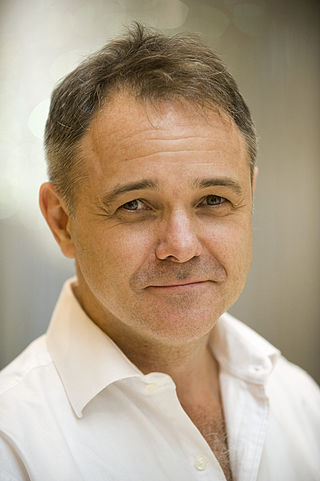
Sir Jeremy James Farrar is a British medical researcher who has served as Chief Scientist at the World Health Organization since 2023. He was previously the director of The Wellcome Trust from 2013 to 2023 and a professor of tropical medicine at the University of Oxford.
The various academic faculties, departments, and institutes of the University of Oxford are organised into four divisions, each with its own Head and elected board. They are the Humanities Division; the Social Sciences Division; the Mathematical, Physical and Life Sciences Division; and the Medical Sciences Division.
The Oxford e-Research Centre (OeRC) is part of the Department of Engineering Science within the University of Oxford in England and is a multidisciplinary informatics and Data science research and education institute.
The School of Archaeology is an academic department of the University of Oxford comprising the Institute of Archaeology and the Research Laboratory for Archaeology and the History of Art (RLAHA), and is part of Oxford's Social Sciences Division. The school was created in 2000 when the two existing departments were combined under this umbrella. Both sub-departments retain separate directors, who report to the head of the School of Archaeology, who is replaced every three years.












